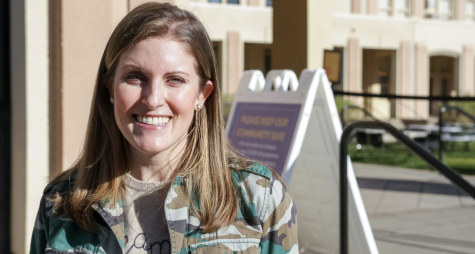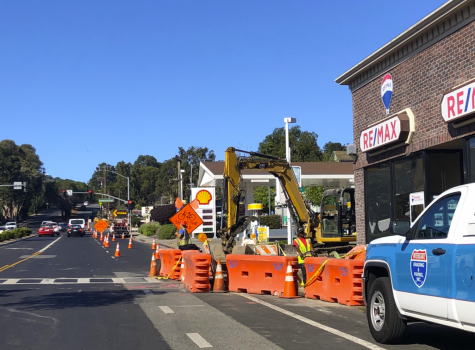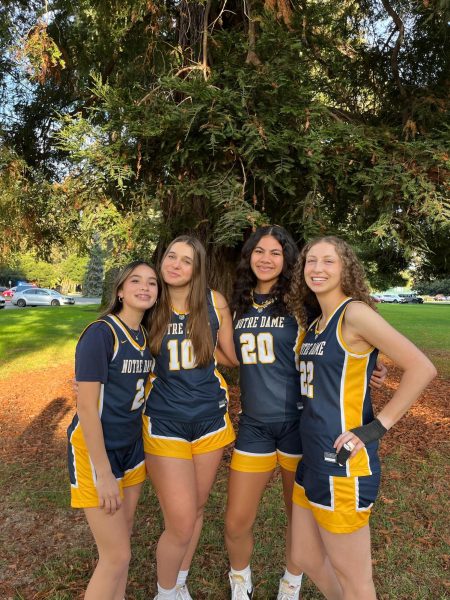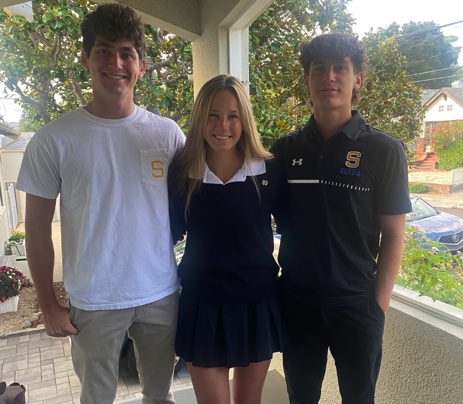Gender identity at NDB: Campus shares perspectives
Task force begins to address and take action on the complex issue
Addressing LGBTQ+ issues in a Catholic school has always been controversial. Last month, a Catholic elementary school in Kansas declined to enroll a student in its kindergarten because the student’s parents are a same-sex couple. Four years ago, the Archdiocese of San Francisco tried to add morality clauses into its teacher contracts to hold them more accountable to Church teachings, including its stance against homosexuality. And, six years ago, NDB canceled a talk by a long-time guest speaker and same-sex marriage advocate.
Things are starting to change — After a discussion with several teachers concerning issues about their students last October, Head of School Maryann Osmond welcomed faculty and staff in forming the Gender Identity task force and addressing the issue of gender identity on campus. In an interview with the Catalyst, she says, over the past several years, she has been educated on the issue by the community and her views have evolved, especially in the inclusion and safety of LGBTQ+ students.
Gender identity is the personal sense of one’s own gender in which an individual may identify with a gender different from his or her biological sex. It is an issue that Catholic schools, especially single-gender schools, are beginning to discuss: What if a student identifies as a different gender compared to what their birth certificate says? What if a biological female identifies as a boy? Can a trans-female attend NDB?
Osmond says, “We have not grappled with this question. We have refused to acknowledge it because we have called ourselves a single gender school.”
In the spirit of the Sisters of Notre Dame’s fifth Hallmark: “We embrace the gift of diversity,” the task force began meeting in the fall of 2018. It reached out to NDB’s Advocate club, in an effort to represent the students’ voices, by having them speak to the task force directly about topics they would like the task force to address and what Advocate had already been working in relation to these topics. It currently has 19 members, including administrators, faculty and staff members, and student representatives from Advocate. These members meet monthly and have been working on short-term and long-term advancements for the school.
Task force member and English/Social Sciences teacher Rebecca Fisher says, “We have had conversations on topics ranging from inclusivity around the school uniform, trainings necessary for me mindful of inclusive language inside and outside of the classroom, the disenfranchisement of the populations we are representing historically and at the school, as well as what does it mean to be questioning your gender while attending a single-sex school.”
In the last two months, the task force rolled out several changes. One was revamping the school uniform to include pants. Another was the designation of a gender-neutral bathroom for students since there already was one for teachers. There was a ribbon cutting ceremony to celebrate is establishment during Diversity Week.
In an email to students, Director of Admissions Cathy Lewis addressed both changes, saying, “The teachers will continue to talk about how to fully support and honor each of you, acknowledge the complexities of identity, and truly embrace the gift of diversity at our school.”
In early March, faculty and staff had the option to participate in professional development by attending a presentation by Holly Osment, a licensed marriage and family therapist, while she spoke about issues facing LGBTQ+ teenagers. She shared research about the mental health of these teens when they experience bullying, rejection, and microaggressions against them.
She also spoke about the significance of using proper terminology and language when speaking to a room of people because you don’t know who is grappling with want and inclusion is important in supporting the mental health of teenagers.
Although laws in America are changing to recognize LGBTQ+ rights, the Church’s teachings are not. Some parishes practice inclusivity, accepting such students and families into their communities. Editor of “America” magazine and Jesuit priest, James Martin, S.J., has tweeted about the Church’s treatment of this community, advocating on the behalf of the LGBTQ+ community.
Likewise, NDB’s Gender Identity task force continues to embrace the school’s diversity and inclusion of LGBTQ+ in its school community.







